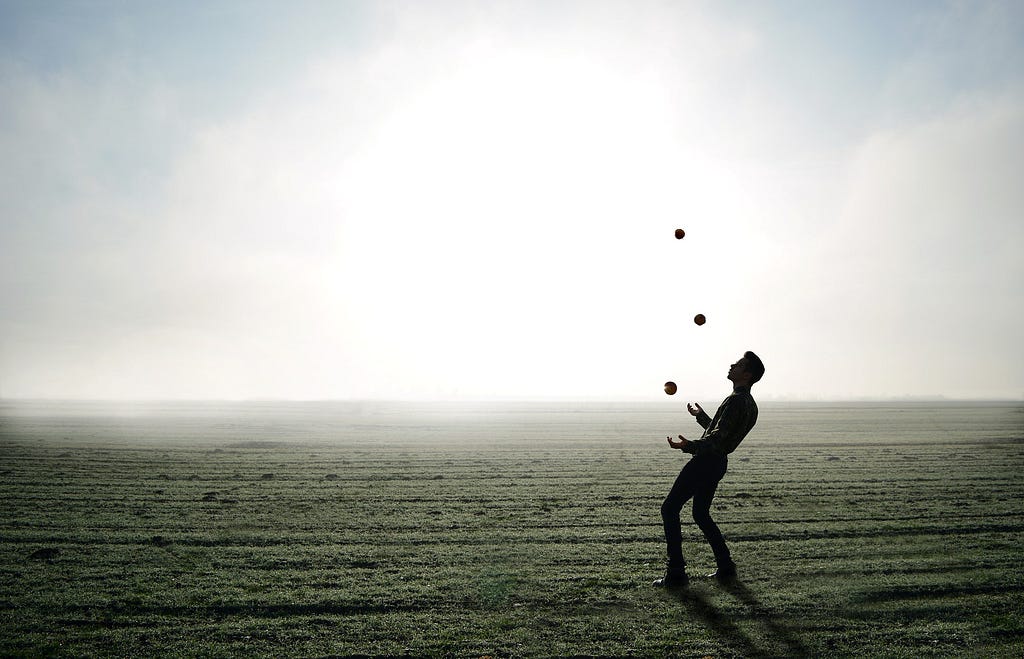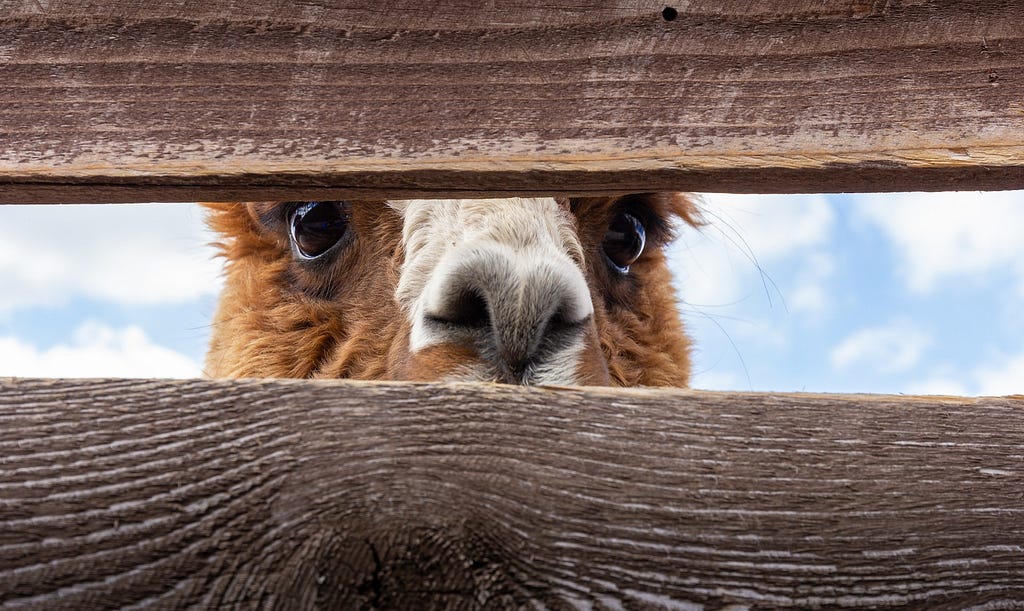A melting pot of skills you might want to hone.

A few years ago, in my early thirties, I decided to return to academia and pursue a Master’s degree in Philosophy at the University of St. Andrews. Being a student on an academic level again was hard, really hard. What on Earth was I doing there? A question which, rather than cast doubt on my decision, made me remember. I was there to sharpen my analytical skills, enhance my intellectual capacity, and learn how to view the world and its problems through the prism of philosophy, so that, later on, I can add more value to my writing.
Yes, I was and still am confident that great literature is deeply philosophical, just as some great philosophy could be a literary gem.
More on that in a bit.
The point is, I went through all that hustle and bustle, so that I can add a philosophical perspective to the pallet of skills that make a good writer better. And I want to excel at what I do.
In what follows, I will distill some of the skills I personally think all writers should consider refining, one way or another. We don’t need to pursue a degree in any of those that actually offer one, of course! And most don’t! Pulling knowledge outside the academic parameter has never been easier, and dedicated self-learning can enhance us just fine.
Curiosity
We are born curious. It came naturally to us when we were toddlers to wonder because that’s how we learned about the world.
Curiosity spurs learning and writers need to be curious on several levels.
Firstly, they need to be curious about the world. Sure, we can come up with fictional worlds but they, too, are somewhat rooted in reality. Sometimes the most outrageous and creative ideas have been inspired by the mundane. The more one expands their knowledge and understanding about various matters in life, the more potency there is for new ideas. Curiosity is the impulse that will make you explore new experiences and unveil new possibilities.
How to hone that skill? Why not start by learning a fun fact from different domains each day? To level that up, think of a short story related to that fact.
Next, writers need to be curious about their characters and stories. You have an idea but it’s too vague. Well, just be curious about it! Sit down and write a sentence or two. There’s no plot yet, but there’s definitely some potential in that vagueness, right?
Ask yourself: What happens next?
In a few more sentences ask yourself the same question, or a different one: Wait, what if my character did this, instead of that?
Repeat until necessary. It’s your curiosity that drives the plot.

Moreover, this ability to apply a sense of wonder to the world and desire to understand it has led to experiments, new connections, and the next skill on the list — creativity.
Creativity
I’ve said it many times, the writer’s creativity is the one that adds value to fiction. The very same story can be told in a grabbing creative style and in a rather dull informative one. You can read more about the way the author’s creativity can help narratives entrap, enchant, and stick with the readers for a while here.
I mean we do call it creative writing, after all! And what does it take for a narrative to be called creative? I’ve written about the three condition for literary creativity here.
This skill is the key driver behind the most tremendous achievements, not only of writers and artists, but also of scientists and tech developers.
But is it really a skill?
After all, many — Plato, Kant, Shakespeare, and Coleridge, among others, were skeptic about it. They saw creativity as an inner capacity; as a divine gift, if you wish. Yet, considering all the creative courses out there, it seems like we are more inclined to agree with Aristotle, who thought of it as a rational activity which involves the selection and refinement of the best means to achieve your goals.
Indeed, some people are “naturally” more creative than others, much like some of us have better physical predispositions for certain sports. We can’t all excel in everything. But it’s also true that we can hone our creativity to a certain degree through different prompts.
The creativity of authors can be expressed in terms of their style and/or content. Writers can practice different writing styles until they refine their own creative signature. And when it comes to content, one way is by unwinding your imagination.

Imagination
Although we often consider creativity synonymous with imagination, they are quite different. I won’t delve into their distinction here but it’s important to note two things.
First, we may call creative a person, a process, or an outcome — be it an idea, or an artifact. Thus, creativity, unlike imagination, is not exactly a mental activity.
Second, the act of imagining can be employed with different aims. We may use our imagination in a constrained way to learn something about the real world. For example, when we imagine if one thing fits with another. Alternatively, we may unshackle our imagination to escape reality. And it’s that kind of imagination that can help us with the novelty required by creativity.
As philosopher Alan White has written,
Great thinkers are often imaginative thinkers because they can free themselves from the rut of the actual and ride on the uncharted trails of the possible.
And creative writers show us exactly that — possible worlds and scenarios. True, some genres are more probable and realistic than others, but whatever the case, imagining is in order. The difference is that, while authors writing historical fiction may need to constrain their imaginings, those writing works in the fantasy genre do not.
Constrained or free, imagining is the best kind of mental exercise for creativity. So how can we polish that skill?
A good starting point are all the different games, especially those used in workshops on improvisation theater. Funny enough, though, one of the best ways to cultivate our capacity to imagine is by engaging with works of literature. No wonder they say you need to read a thousand pages to write a single sentence.
When reading, we get the opportunity to imagine what the characters and places from the narratives look like. We imaginatively anticipate what might happen next, or explore alternative outcomes of the story.
Moreover, engaging with works of fiction helps us understand the inner worlds of a wide range of characters. As we put ourselves in their shoes, we practice empathetic imagination and encounter things we may never get to in real life. All this broadens our understanding of the human experience which brings us to the next skill.

Psychology
One sure way to avoid having flat characters is better understanding of our inner worlds. Knowing why they think, feel, and act the way they do, can help you build a story that resonates with the readers. Even if they’re elves, your characters should feel authentic with logical backstory and character arch. And though no one expects from authors to be professional psychologists, some knowledge in that domain can be of great help.
Learning about different types of human characters and personality traits can help you build more reliable ones for your story. Moreover, it can help you stay inside their heads. It’s no easy task for writers to slip from the shoes of the protagonist into those of the antagonist, only hop into the shoes of the confidant, or the foil, without messing up the plot.
Many writers rely on the archetypes suggested by psychologist Carl Jung, which represent a set of universally recognizable behaviors. The warrior, the sage, the child, the lover, the caregiver, among others, those are archetypes which you could use as a starting point to develop your character. I know that may seem like falling for the cliché, but it will be up to your creative skills to avoid that. After all, we are guided by a finite set of desires and fears.
Next, being able to read gestures, facial expressions, and physical movements, can help writers follow the golden rule of “show, don’t tell.” Instead of writing how your character feels, use your constrained imagination and knowledge from the psychology domain to describe how they could act based on those feelings.
Even if your writing skills are excellent, weaving a great story requires more — the fine art of human understanding. And you don’t need a degree for that. Simple curiosity can take you a long way. Don’t forget to compliment your reading of relevant books with observation. What kind of things people say and do in certain situations? How do they solve the problems they encounter?
A fun way to hone both your imagination and understanding of the human psychology could be to sit somewhere outside where you can observe strangers. Pick one, or have someone else pick one for you, and then try to tell by their looks and gestures who they are, what they do. Hey, even come up with you own story about them!

Philosophy
Aristotle argued that poetry is more philosophical and more serious than history, because the former tends to express universals, whereas the latter — particulars. Indeed, philosophy and literature go a long way back.
Lucretius wrote poetry. His De rerum natura is a six book poem of about 7400 lines written in dactylic hexameter.
Heraclitus wrote aphorisms.
Plato, Augustine, Berkley, and Hume, among others, wrote dialogues.
Montaigne is the father of the essay form.
Voltaire, Camus, Santayana, and Sartre, among many, made philosophical points in their novels.
Nietzsche preferred literary expression altogether.
Similarly, authors of literary fiction have used philosophical views to develop their plots. To mention just a few well known works: Tolstoy’s War and Peace, Dostoyevsky’s The Brothers Karamazov, Camus’s The Stranger, Proust’s In Search of Lost Time, Calvino’s The Baron in the Trees.
And even though one may distinguish between literary philosophy (Nietzsche) and philosophical literature (Dostoyevsky), it’s undeniable that great works of literature withstand the test of time because they offer more than beautifully arranged words. They touch upon the eternal questions that often make us restless. Moreover, let’s be honest, nowadays literary philosophy is no longer a thing. Academics consider real philosophy only papers and books that fall within a certain format.
Going back to authors, on one hand, they may simply get acquainted with certain views and use those in their narratives. Dante, for example, used Thomas Aquinas’ philosophy. On the other hand, writers can become acquainted with certain philosophical issues and, after some serious thinking, come up with their own views. Or come up with views suitable for some of the characters they are building. All this, of course, has to be subtly infused in the narrative, otherwise it will turn into a boring didactic work. And this can only be done by someone who has mastered the creative aspect of the written word.
I hope you can see how beautifully entwined those skills are. While being a wordsmith is an absolute basic necessity for any writer, I think that great storytelling requires more than that. The question now is, whether those skills that require agency can still give humans a competitive advantage over artificial intelligence. But that, I’m afraid, begs for some deep thinking and research and an article of its own.
If you like what you’ve read, you can support me by clicking on the Follow button — a guarantee you won’t miss out on my new articles.
Thank you!
Why Excellent Writing Won’t Suffice for Great Storytelling? was originally published in The Writing Cooperative on Medium, where people are continuing the conversation by highlighting and responding to this story.
Go to Source
Author: Lina Ignatova